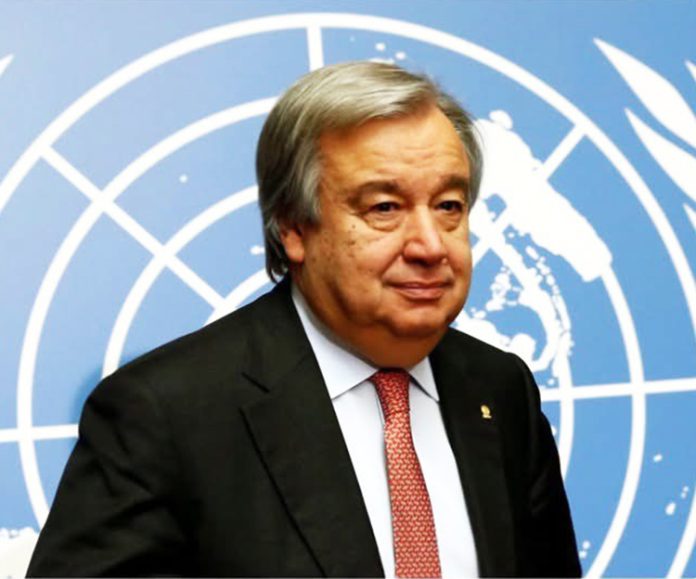The United Nations (UN) Secretary-General, António Guterres, has called for a global effort to ensure digital technology serves humanity and not the other way around.
He made this statement at the opening ceremony of the 19th Internet Governance Forum (IGF) on Monday, December 16, 2024 under the theme: “Building Our Multi Stakeholder Digital Future,” at King Abdulaziz International Conference Center in Riyardh.
Mr. António Guterres praised Saudi Arabia for hosting the event and highlighted the significance of the recently adopted Global Digital Compact, describing it as “a blueprint for humanity’s digital future.”
Addressing the gathering, Mr. Guterre said “The Compact expands the vision of the World Summit on the Information Society to recognise digital technologies as global public goods.”

He outlined three groundbreaking components of the Compact: bridging the digital divide, tackling emerging challenges such as hate speech and data misuse, and developing the first universal agreement on AI governance.
Mr. Guterres underscored the urgency of AI regulation, advocating for a multilateral approach, stating that “The Compact commits governments to establish an independent international scientific panel on AI and to initiate a global dialogue on its governance within the United Nations.”
The Role of the Internet Governance Forum
The UN Under-Secretary-General, Mr. Lin Junhua, emphasised the pivotal role of the IGF in shaping global digital policies.
Reflecting on its achievements since 2006, Junhua called the IGF “a guardian of an accessible, affordable, safe and resilient internet.”
He stressed the importance of aligning the IGF’s principles with the broader goals of the 2030 Agenda for Sustainable Development and the Global Digital Compact.
“The IGF tackles issues like cybersecurity, AI governance, and digital infrastructure resilience, informing decision-makers worldwide,” Mr. Junhua noted.
As the UN prepares for the 20-year review of the World Summit on the Information Society in 2025, Mr. Junhua encouraged participants to build on the IGF’s legacy.
“The challenges we face are formidable, but so is our collective potential,” he said.
Bridging the Digital Divide
Saudi Arabia’s Minister of Communications and Information Technology, His Excellency Engineer Abdullah Alsawaha, highlighted the stark disparities in global digital connectivity.
He revealed that while 91% of the population in the Global North is connected, only 44% in the Global South have access to the internet.
“This divide translates into a global gender gap that will take 134 years to close and costs humanity $7 trillion,” Alsawaha stated.
He also emphasised the unequal distribution of digital economy benefits, with per capita contributions in the Global North outpacing the Global South by 3.5 times.
Mr. Alsawaha outlined Saudi Arabia’s initiatives to bridge these gaps, including Connecting from the Skies, a project leveraging satellite technology to expand connectivity.
He also celebrated the Kingdom’s progress in women’s digital empowerment, increasing female participation in technology from 7% to 35%.
“The cost of inaction in addressing these divides is immense,” Mr. Alsawaha warned.
“But through partnerships and collaboration, we can create a digital future that leaves no one behind.”
Challenges of the AI Era
As the world transitions from the digital age to the “intelligence age,” Mr. Alsawaha pointed to emerging divides in AI—computing power, data access, and algorithmic equity. He stressed the need for robust AI governance to prevent bias and exclusion.
“Today’s IGF must tackle the algorithmic, data, and compute divides. AI models must be scalable, secure and sustainable, leaving no one behind,” he urged.
Mr. Alsawaha announced Saudi Arabia’s initiatives to address these challenges, including the launch of AI research centers and partnerships with global tech leaders to develop scalable infrastructure.
A Call to Action
The IGF continues until December 19, focusing on strategies to close digital and AI divides, strengthen cybersecurity, and build resilient digital infrastructure.
As discussions unfold, stakeholders are united in their commitment to advancing a multistakeholder approach to digital governance, ensuring that technology becomes a force for inclusion, equity, and progress.









